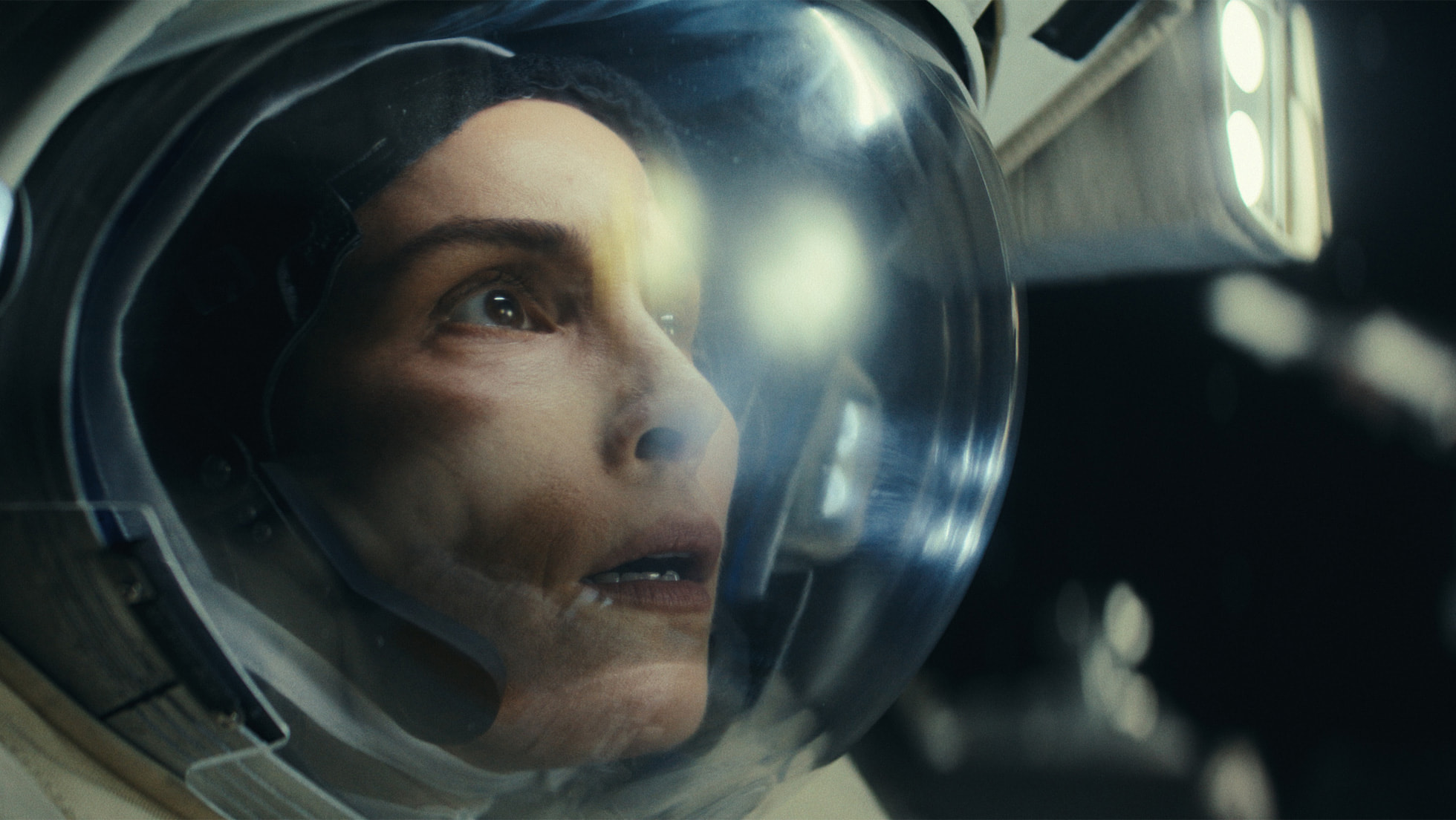Constellation New Apple TV Series: In The Silence Of Space, No Snores Are Audible
Constellation Apple TV series brings astronaut Noomi Rapace back to an unsettlingly peculiar Earth, emphasizing the notion that certain shows might be better suited as films.
The recently premiered drama, Constellation, is rich in atmosphere. However, it fails to deliver a compelling narrative that matches its eerie ambiance.
Crafted by seasoned British television creator Peter Harness, Constellation features Noomi Rapace as Jo, a Swedish astronaut on an extended mission aboard the International Space Station. An experiment led by celebrated astronaut-turned-scientist Henry (Jonathan Banks) goes tragically wrong, and upon Jo’s return to Earth, she senses that something is amiss. The familiar aspects of her life, such as the family car and her husband Magnus (James D’Arcy), seem altered. Her husband suspects an affair she doesn’t remember, and even their daughter Alice, once bilingual, no longer speaks Swedish. Jo begins witnessing inexplicable phenomena, raising concerns among her colleagues about her mental well-being. Simultaneously, the audience receives mounting evidence that the reality for these characters is distorted. Notably, Banks plays multiple roles, and Alice is portrayed alternately by twins Rosie and Davina Coleman, hinting at the underlying mysteries.
Constellation New Apple TV Series Unveils a Gripping Cosmic Mystery, Noomi Rapace’s Journey Through an Altered Reality
Michelle MacLaren, a prominent director in modern television, helmed the first two episodes of the new Apple TV series Constellation, showcasing her ability to evoke fear in the audience akin to the characters on screen. MacLaren, renowned for her work on Breaking Bad, notably directed the iconic One Minute shootout between Hank and the Cousins. Her directorial prowess is evident in the unnerving and chaotic sequences set in orbit. Like Apple’s other astronaut-themed drama, For All Mankind, Constellation adeptly portrays the inherent dangers of space travel. The narrative introduces elements of the catastrophe that defy rational explanation. One of these is the discovery of the corpse of a Cold War-era cosmonaut embedded in a damaged section of the ISS.
Constellation builds an intriguing setup, raising anticipation for what lies ahead. However, it succumbs to the common pitfall of streaming dramas—attempting to stretch a two-hour plot into an eight-hour format. Each idea becomes a repetitive cycle of elongation. It also diminishes the wonderful tension established in the early chapters long before the end.
One episode offers a different perspective to clarify Jo’s experiences. It borders on filler, however, by rehashing points already emphasized on multiple occasions. Despite its atmospheric and unsettling premise, Constellation strives to maintain its narrative momentum. However, it risks losing viewers to the fatigue of an overextended narrative.
I approached Constellation with limited knowledge, aware of the premise and the main actors, assuming it was a limited series. As I continued watching, a sense of commitment and curiosity fueled by the sunk-cost fallacy kept me engaged. However, Constellation was intended to be an ongoing series, and its creator, Peter Harness, envisioned several seasons to develop the story. Realizing that the narrative could extend beyond its natural scope added an element of disappointment to the viewing experience.
A TV Show That Should Have Been a Movie
Constellation’s new Apple TV Series falls into the category of “This TV show should have been a movie,” echoing the sentiment of the “This meeting could have been an email” meme. In an unfortunate trend, the series could have potentially thrived as a condensed cinematic experience. Noomi Rapace and Jonathan Banks deliver exceptional performances tailored to their respective strengths, portraying guarded curiosity and world-weariness.
The intriguing concept of hidden dangers from space travel following astronauts to Earth holds promise. However, creator Peter Harness’s penchant for embracing slowness as a virtue sometimes lacks the necessary substance to justify the patient approach.
Featured Image Via Apple TV+









Leave a comment